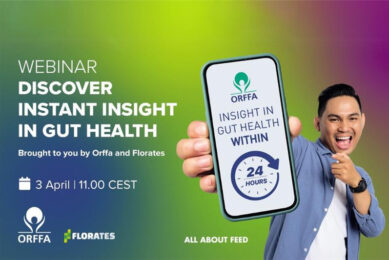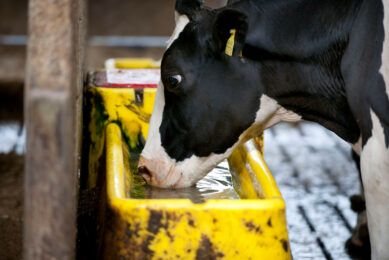On-demand: Webinar on heat stress in livestock

How can management help to better be prepared for heat stress? And are there specific nutritional measures to attenuate the effect of hot climatic conditions? These questions were addressed at a recent webinar on heat stress, which is now available for re-viewing on demand.
The webinar was aired on Wednesday, March 24 from Rotterdam, the Netherlands. It featured expert speakers from the Federal University of Minas Gerais, Brazil, Agrifirm and Lesaffre by Phileo.
Click her to view the webinar on-demand
Management strategies to mitigate the heat stress effects
Dr Bruno Silva kicked off the webinar. He is professor of swine nutrition and environmental adaptation at the Federal University of Minas Gerais in Brazil. Having discussed why farm animals in general suffer from heat stress, he touched on a series of measures which can be taken to mitigate the effects of heat stress.
He discussed how to make clever use of the surroundings and environment, water pools, the use of sprinklers and bathing, forced ventilation, evaporative cooling systems, cooling pads and water cooling. He said, “Investing in environmental modifications reduces negative impacts and improves performance. All that will help to mitigate the effect of heat stress, improve the animal’s welfare and of course benefit profitability.”
Nutritional solutions
Next speaker was Wim Wanzele, nutritionist at the market support team of Agrifirm. Just like the previous speaker he focused his attention on all farm animal species and he delved into gut health in the context of heat stress. He discussed the effects of heat stress – less meat, less milk, fewer eggs.
Pivotal in his presentation was the question whether a heat stress related decrease in feed intake would be fully responsible for the reduced performance? “The answer is no,” he said, because several things are happening simultaneously. Supporting animals is possible through feed formulation he said, and also through the use of specific feed additives.
Yeast solutions in dairy cattle
Third speaker of the webinar is Dr Mohamed Mammeri of Phileo by Lesaffre. He zoomed in specifically on dairy cattle. He wondered how to assess the thermo-tolerant ability of dairy cows and to that end he introduced the Temperature-Humidity Index (THI).
The company introduced the app “Heat stress management in dairy cows”, helping producers to assess heat stress on dairy production and thus assisting to predict when animals are in need of help. He also discussed the effects of live yeast supplementation to dairy cows during the hot season of production.











